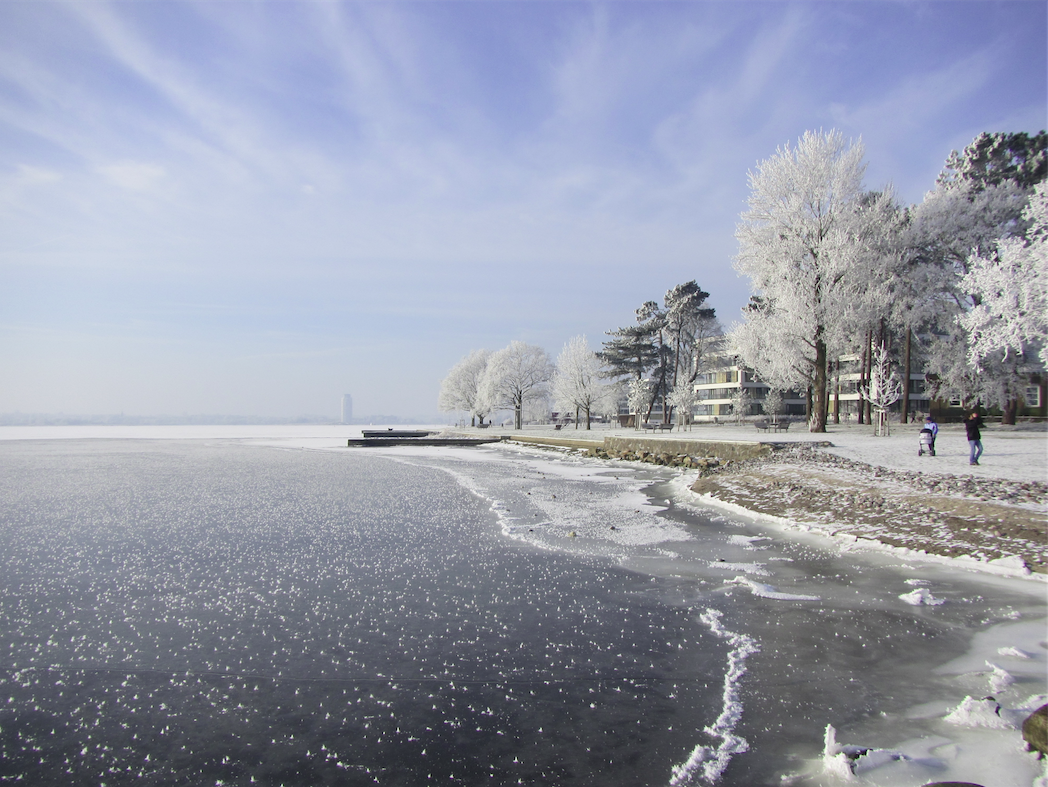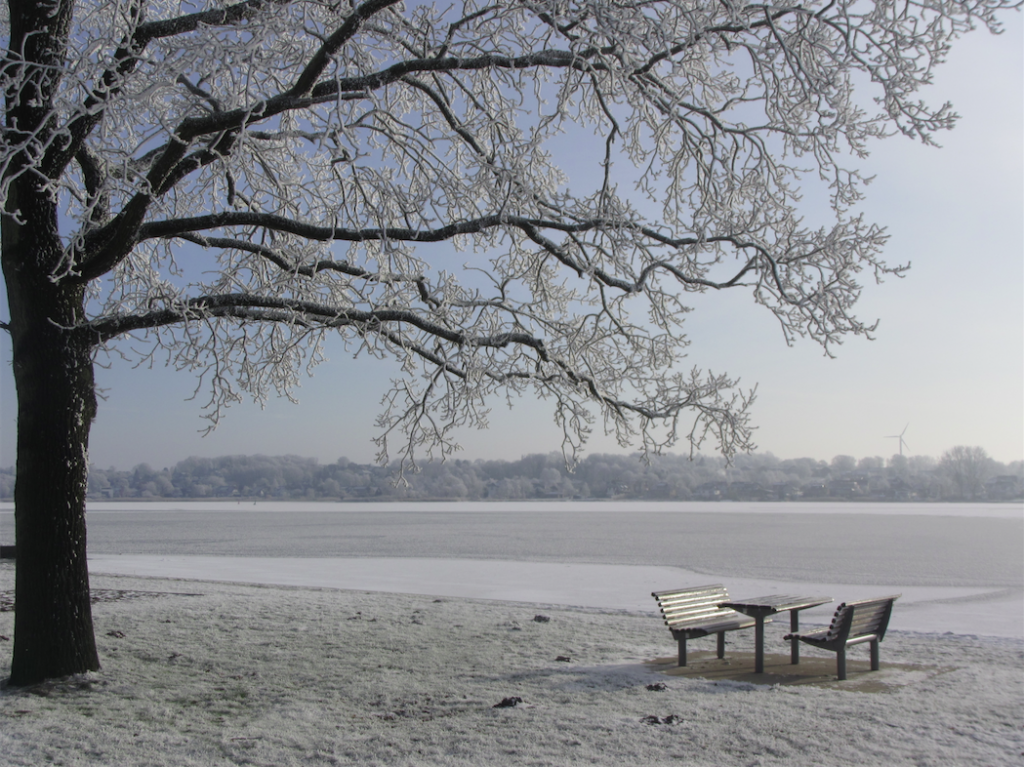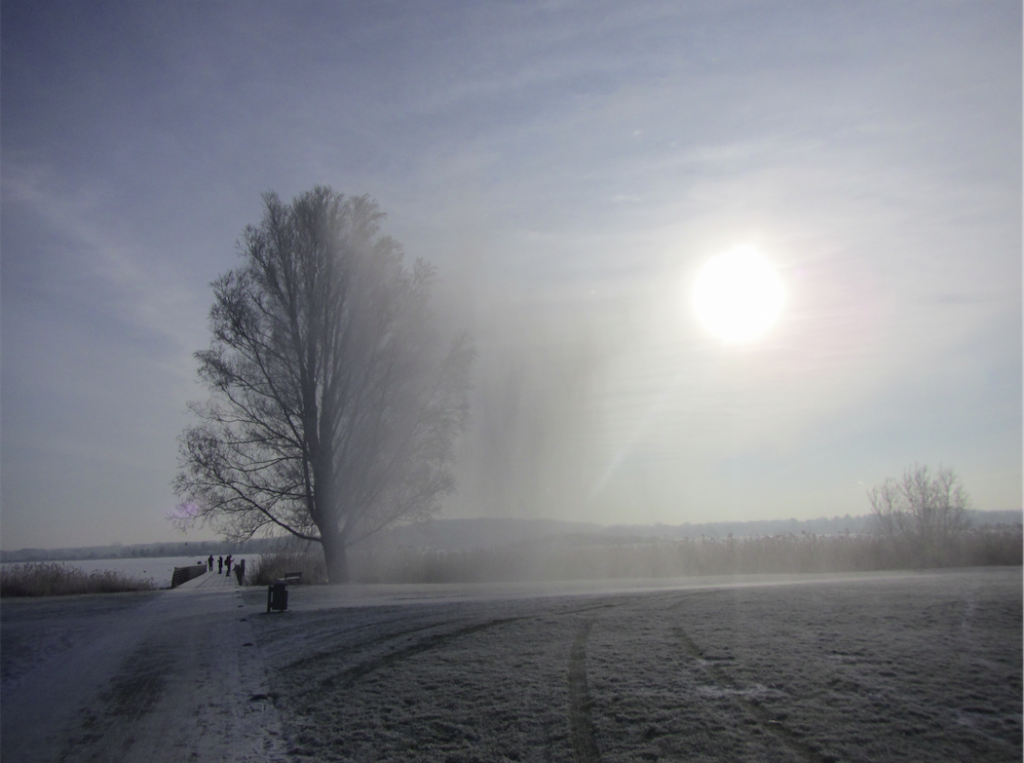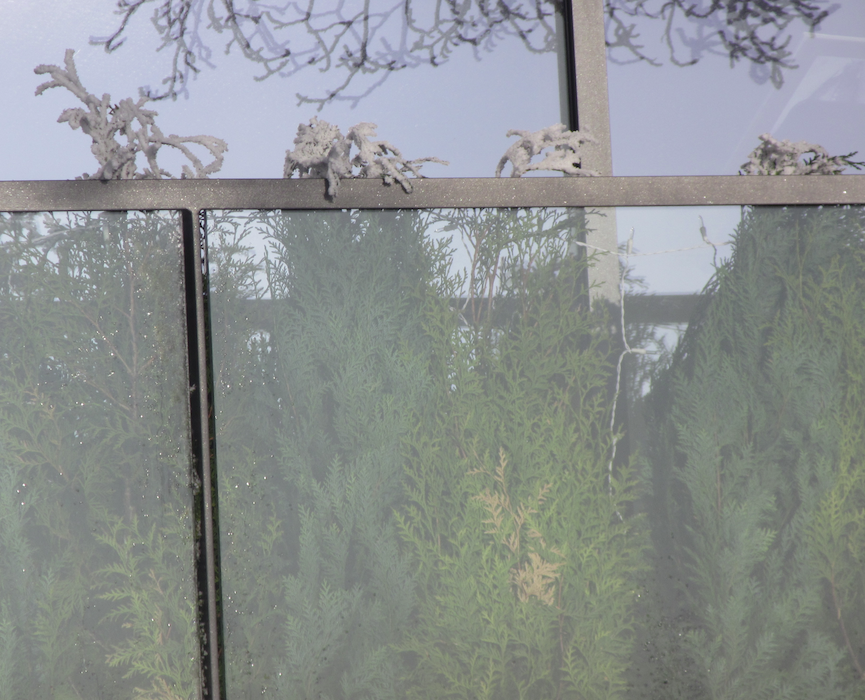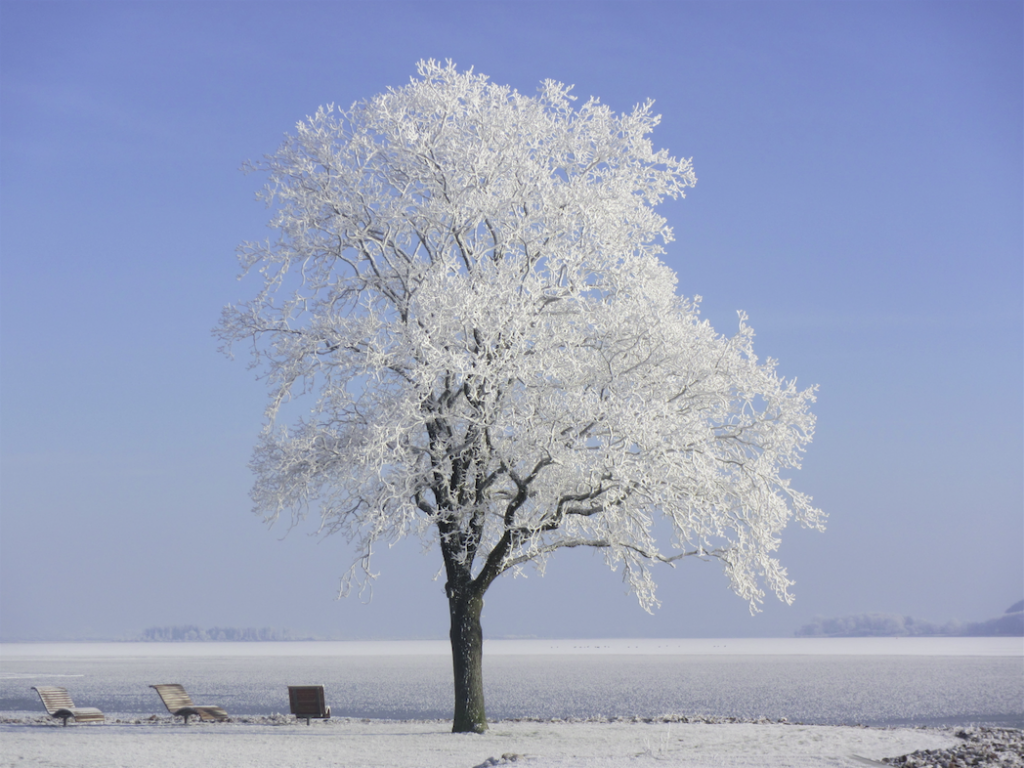What happens when water vapour freezes to ice without going through the liquid phase? Frost flowers!!!
That’s when trees suddenly look like this:
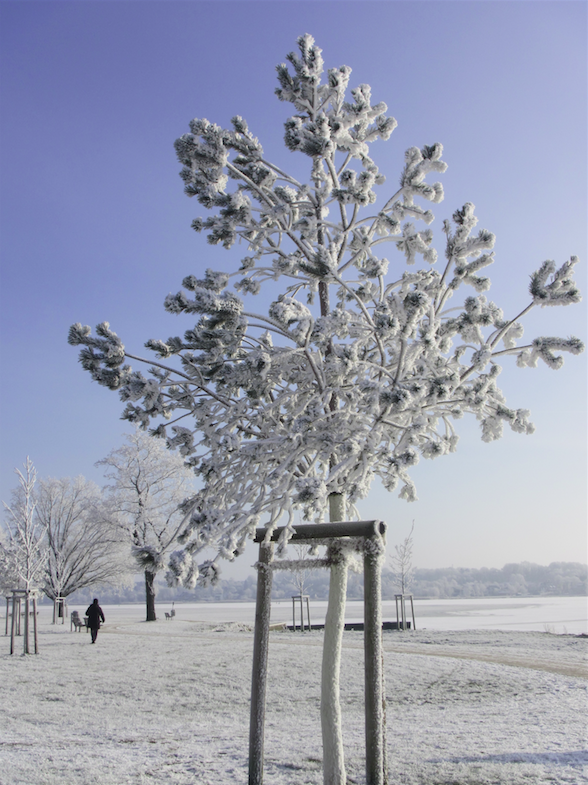
Frosted tree.
Btw – the stem of that tree is painted white! That’s just to confuse you a little but…
But let’s take a closer look. This is what the branches look like: Tiny ice needles growing on the individual pine needles! And the orientation of the image below is correct. They are growing to the side!
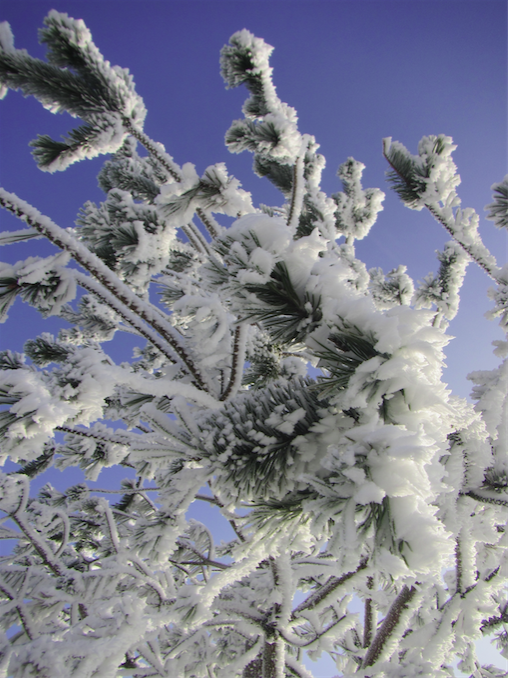
Frosted tree.
You can clearly see them all growing to one direction, to one side!
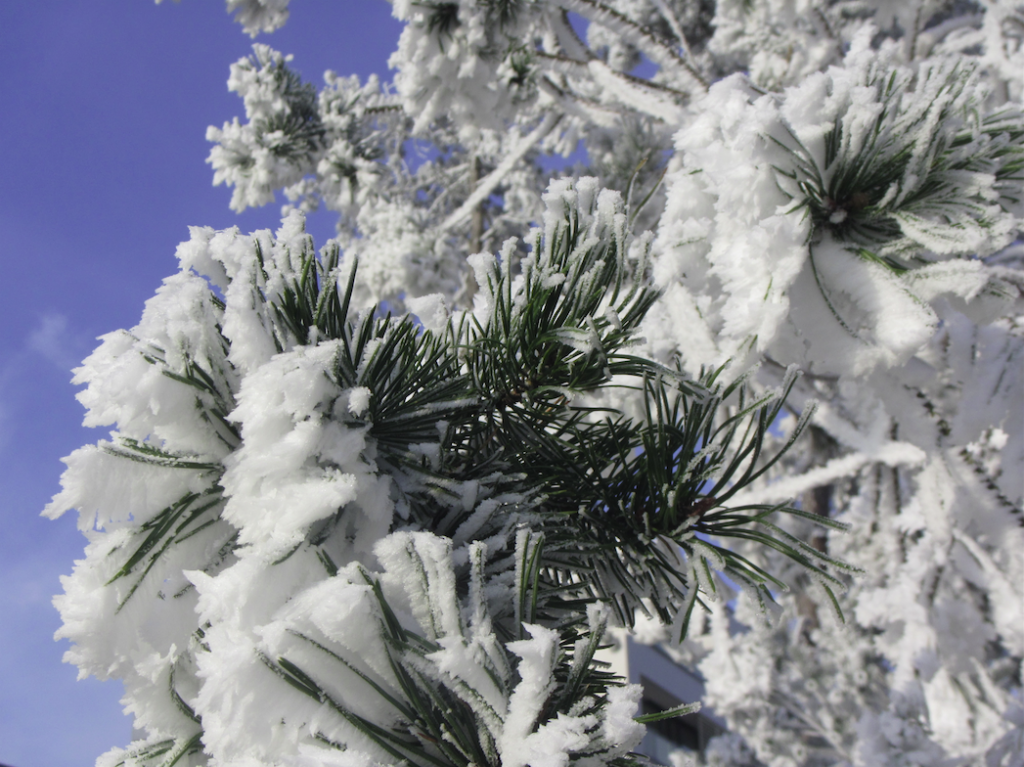
Frosted tree.
When you take off a bit of frost, this is what it looks like. Needles, but with a fractal 3D structure! Since what happened here (water vapour freezing without becoming liquid in between) is basically snow forming on the surfaces down here instead of in the clouds up above, it isn’t too surprising that snow is exactly what the frost bits feel like.
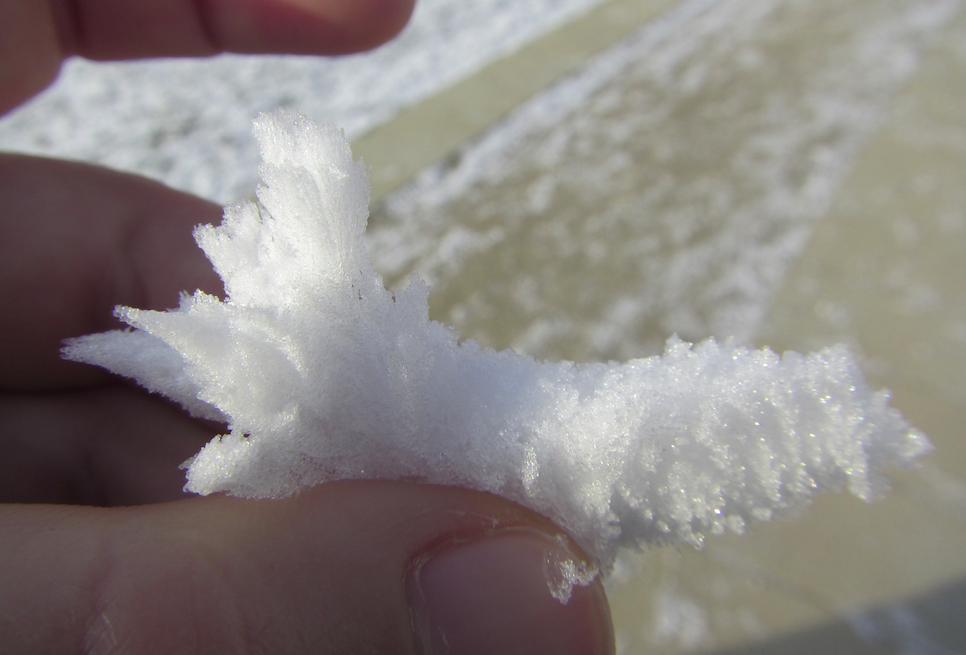
A piece of frosting. This picture isn’t blurry – the ice needles have a fractal 3D structure!
Look below, you can clearly see the frost only growing to one side (and this picture is the right way up, too!):
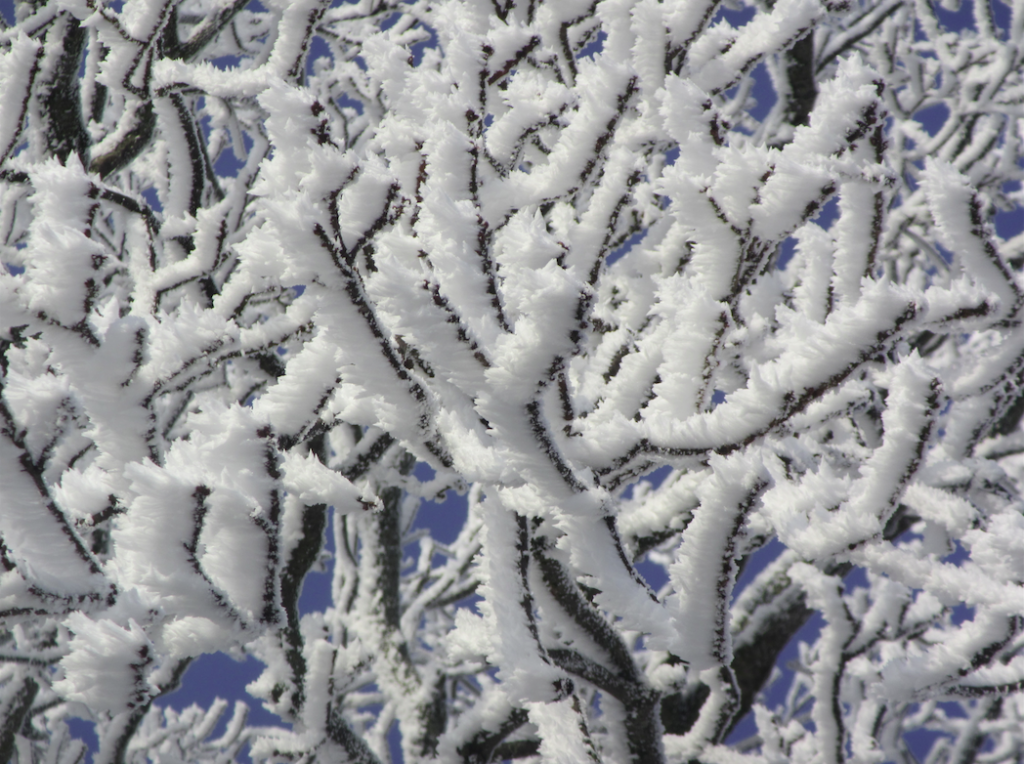
Frosting on tree branches
Doesn’t it make you want to sit there and just watch?
Although every time the slightest of breezes comes, this is what happens:
Also really cool: These plants growing on a balcony behind a glass railing. Only the tips have been frosted!
And if you were wondering what this post has to do with oceanography, check out the image below. Can you spot it?
Can you spot it now? No, not my niece (although she is pretty cool, too!), the frost flowers!
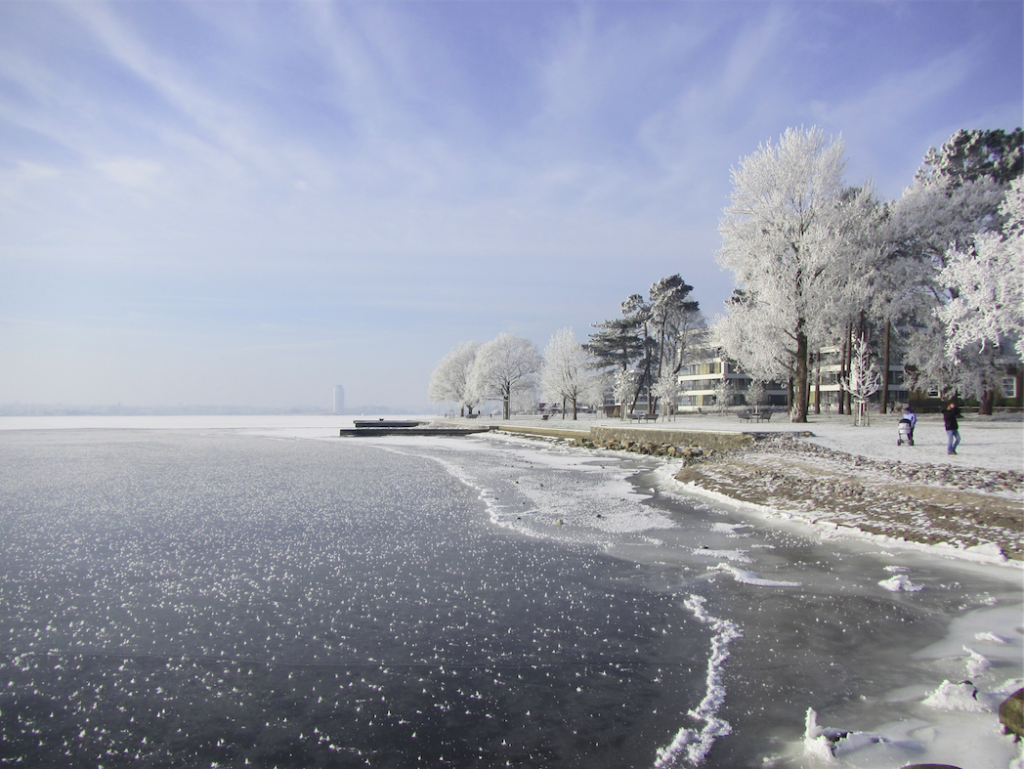
Schlei river in Schleswig with frost flowers
We’ll talk about those next time :-)
